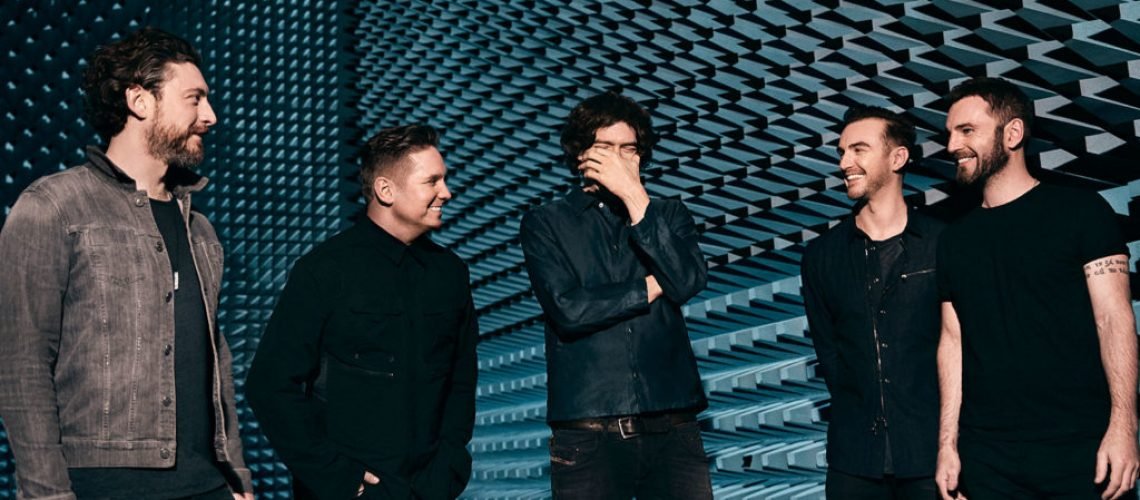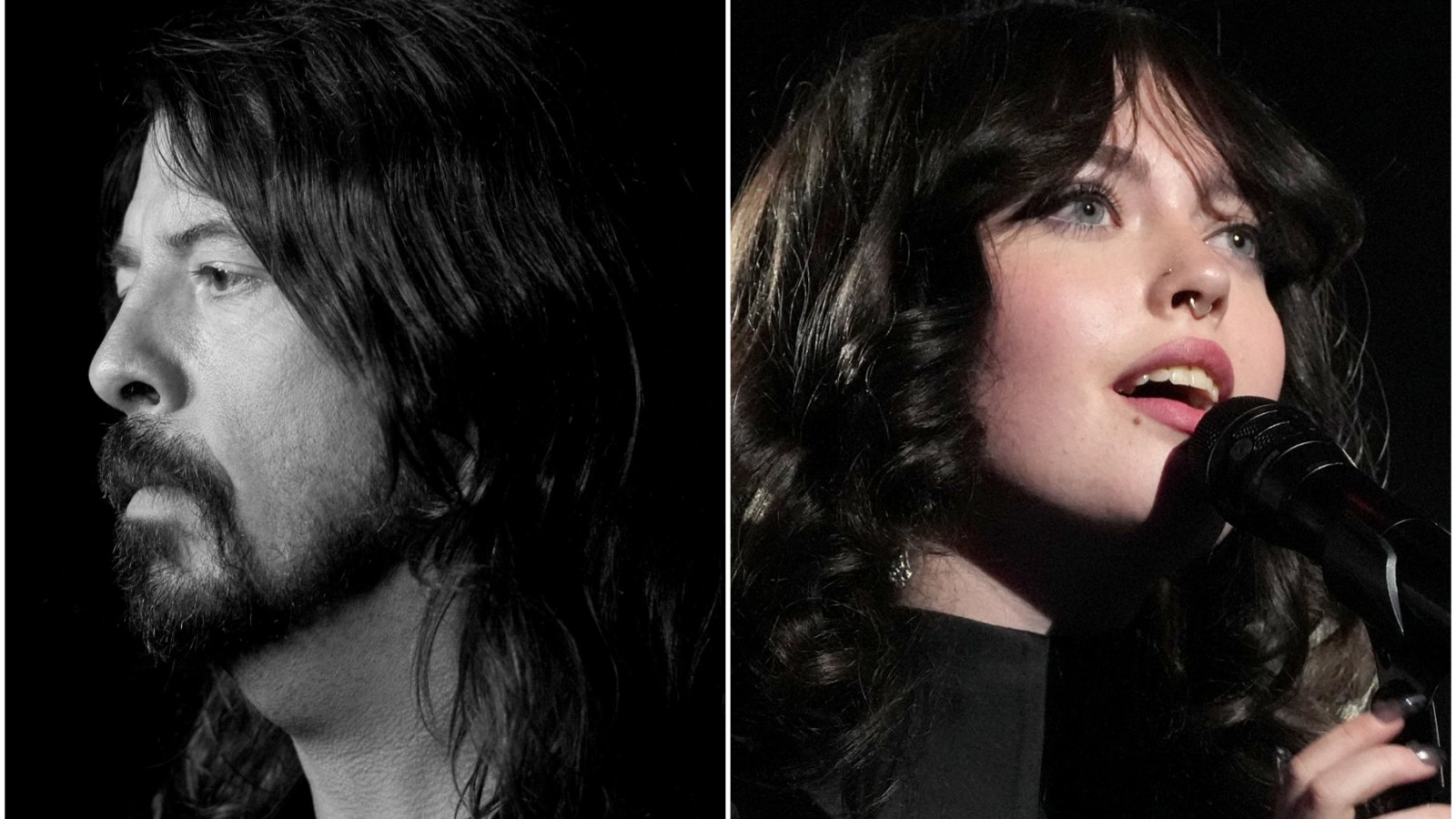Like millions of people, Snow Patrol’s frontman Gary Lightbody may be isolating during the COVID-19 pandemic, but for at least 11 weeks, he gathered with thousands of people in the ultimate example of safe social distancing.
Shortly after the lockdown began, Lightbody launched what became the Saturday Songwrite, a weekly collective songwriting session on Instagram Live. For 45 minutes each week, up to 5,000 fans joined Lightbody to write a song from scratch. He then finished writing the tunes—often within an hour of the session’s send and with the caveat that there be lyrics from a Saturday Songwriter in each line. Then he and his band, with producer (and former Snow Patrol member) Iain Archer, recorded the songs remotely.
The result is The Fireside Sessions, a five-track EP credited to Snow Patrol and the Saturday Songwriters. Out Friday (Aug. 21), all proceeds from the thoughtful, often emotional album will go to The Trussell Trust, nationwide network of food banks in the U.K.
Lightbody, who is sheltering in place in Los Angeles, talked to Billboard about creating the EP and how his new collaborators may have changed his songwriting process for good. He added he has written three albums’ worth of songs so far during the shut down and will decide which are right for Snow Patrol when he and his bandmates can safely gather in person again.
How did you come up with the idea to start the Saturday Songwrite?
I have been writing a lot in lockdown. The reason why I came out to L.A. in the first place was to write on an album and so I went into lockdown in a rich vein of writing so I feel very lucky that I was in that mode. I was doing a lot of live shows on Instagram and Facebook. I just thought it was maybe the next step to try and write a song on there. I’m not sure when it came to me exactly, but it was probably an idea that I talked myself out of a few times before actually said I think that’s viable. The first Songwrite session, there’s a lot of caveats, like “it’s okay if they don’t write a song!”
How structured was the process?
I was making it up as we went along the first time because I didn’t even know I was going to ask people for chords, then I put a melody together and we’d pick our favorite one. And then I’d ask for lyrics. I don’t know what I was going to get that first time. Some people were making jokes, but 95% of them were really heartfelt people speaking from where they were in that time and that place. They were tentative at first, and as the weeks rolled by, it became kind of second nature for people. I was buoyed by everyone else’s gusto. It was really inspiring to be in that environment. I didn’t expect it to produce so many songs. We did 12 in 11 weeks, but the main thing was that it was the place everybody could share out in the open. I really enjoyed it. We’re going to do one more Songwrite the day after the EP comes out. Then we’ll have eight songs leftover and we’ll make another record. It won’t be like an official release, we’ll put it on Bandcamp or something like that.
Did this help you feel less isolated?
I’m on my own. I’m in a bubble with a couple of friends. We’re all on our own, but we can spend time together as well. So I do spend a lot of time alone, as have many people. It did helped me massively to feel more connected. I didn’t think I could do something like this. I didn’t think that I’ll be sitting in my house writing songs with thousands of people.
What did you as a songwriter take away from this experience?
Not to say that I didn’t put thought into these because I did, but I think you can put these songs besides other songs that I’ve written in lock down that took me days or weeks to finish and you wouldn’t be able to tell the difference in terms of quality. I think it’s said a lot to the spontaneity of it. In my case, maybe using my instincts more than I have been doing recently up until this period. I think to when I was editing and editing and editing and editing the lyrics for at least two of the last Snow Patrol studio albums and perhaps that’s not always the best thing to be doing. I do like to get the lyrics just so, but maybe my instincts are just as important to listen to as my editor.
One week you picked joy as a theme for the Songwrite. Was that because you were only getting lyrics about the pandemic?
It’s funny cause the lyrics vacillated. The theme over the course of the 30 minutes of the lyric portion of the sessions would seem to sort of push and pull between isolation, which is an obvious theme at times of lockdown, and hope, which I guess is maybe less obvious. Sometimes I would give a theme to kind of maybe try and push the hopeful side of things a little bit more. But most of the time, I just let it be that kind of tug of war between the two. That’s the thing that was the most encouraging thing from it: all the songs feel infused with hope, feel fused with positivity, even if they’re written in times which might’ve been at odds with that.
Did everyone record remotely?
Everybody was remote. Legendary Irish drummer Graham Hopkins, who played on the last two songs on the EP, recorded his drum tracks with six iPhones scattered around the drum kit with the voice memos on record. [Singer] Miriam [Kaufmann] was in the studio with Iain since they are part of the same family, but everyone else was recording on GarageBand. Johnny McDaid has his own studio set up. Various people had inventive ways to record.
How important was it to you that these songs stand on their own and don’t only reflect the pandemic?
Really important. When I went offline to put the song together, that’s the thing I was kind of looking for the most. I was looking for something that would survive the context, and not go down too many very specific alley ways of what was actually going on because it’s really important that these songs never become something that people think “That was then. I don’t want the think about then.” I want them to live on for as long as they will. I’m really proud of the songs, even though I had very little to do with them, I was just the connection point. It was a really, really fun experience. It’s something I won’t forget at a time when obviously everybody was going through a lot of financial and mental, emotional problems and trials. And it’s something that come out of it that for me is a positive thing.




